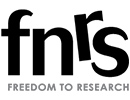Hegel?? Yes, Hegel!
04.12.2017Neuroscientists normally have scant interest for classical continental philosophy. If at all, they would study modern analytical philosophy, which in turn pays back with explicit consideration of neuroscience, as is evident in the INSOSCI methodological framework, the mechanistic approach. So, it came as a big surprise to me reading a paper by Marchetti and Koster on a Hegelian hypothesis on consciousness. The authors argue that Hegel’s concept of recognition is powerful for explaining the interdependency of selves in constructing self-consciousness. Hegel’s idea was that human self-consciousness is fundamentally social, and Marchetti and Koster think that recent developments in the neuroscience, especially regarding the mirror neuron system and the default mode network, vindicate his philosophical views in empirical neuroscience terms.
This is a position that Ivan Boldyrev and I have already developed in our book on Hegel, in which the brain sciences play an important role. Indeed, there are emerging fields within neuroscience which further support this case, such as cultural neuroscience. In a recent review, Han and co-authors describe this approach as non-reductionist, approach culture and the brain as co-evolving phenomena, and suggest viewing the brain as ‘biosocial’ entity. One central fact in this research is the malleability of the brain, even in the sense of offering competing types of structural dispositions, for example, when bilingual subjects manifest different activation patterns of the brain in task processing when tasks are presented in the two languages, respectively. This often involves those brain areas which presumably are specialized on social coordination, theory of mind, and selfhood. Thus, psychological and sociological approaches to culture can be related to neuronal mechanisms, but we cannot say that those mechanisms are causal antecedent to the behavioural phenomena, because the external cultural triggers are equally powerful in determining the effects.
This kind of flexibility of neuronal processing is very important for the INSOSCI project because we can also think about cultural frames in different professions. In my own work, I have elaborated in much detail on the priming effects of money. Cultural neuroscience would suggest that financial actors could manifest different patterns of brain activation when on the job, compared with spending time with their friends and families. This raises very difficult methodological issues: Cultural neuroscientists rightly point out that most of experimental brain scanning experiments are done with white student populations (for cost reasons), which might seriously distort generalizations over other populations. Perhaps we would get an entirely different picture when we would have the capacity to observe brain activities ‘in the field’, with subjects acting in diverse social and cultural contexts?
Hegel helps us to develop a systematic approach to these phenomena (and Mead, my favourite author in previous blogs, was a student of Hegel, as Marchetti and Koster also point out). However, referring to Hegel has many implications which may shatter the foundations of neuroeconomics and behavioural economics, in their current state. I think the most important issue, that also affects our INSOSCI mechanistic framework, is that Hegelian philosophy rejects causal explanations of human behaviour, at least in the sense that we would search for internal causal determinants of behaviour. This relates to his idea of ‘freedom’, which includes freedom from internal behavioural drives. Different from Kant, Hegel believed that this freedom is only enabled by social interaction: That is the point of recognition. But that means, for example, that ‘intentions’ are not inner states, but emergent properties of interactions. Interestingly, even this view has counterparts in modern neuroscience: In one of the leading textbooks on cognitive neuroscience that I already cited in previous blogs, the authors ponder whether ‘free will’ is a social construct that emerged because with this mutual ascription of agency and intentions, successful coordination in groups becomes possible. This is a deeply Hegelian idea. They write (p. 642): “Ultimately, if responsibility is a contract between two people rather than a property of the brain, determinism has no meaning in this context. Human nature remains constant, but out in the social world, behaviour can change.”
In practical terms of research strategy, this insight calls for cross-disciplinary integration, especially regarding sociology. In dealing with finance, joining the forces of behavioural finance and neurofinance with sociology of finance would be a Hegelian turn.
Gazzaniga, Michael S., Richard B. Ivry, und George R. Mangun. Cognitive Neuroscience: The Biology of the Mind. Fourth edition. New York London: W W Norton, 2016.
Han, Shihui, Georg Northoff, Kai Vogeley, Bruce E. Wexler, Shinobu Kitayama, und Michael E.W. Varnum. ‘A Cultural Neuroscience Approach to the Biosocial Nature of the Human Brain’. Annual Review of Psychology 64, 1: 335–59. https://doi.org/10.1146/annurev-psych-071112-054629.
Herrmann-Pillath, Carsten, und I. A. Boldyrev. Hegel, institutions, and economics: performing the social. London, New York: Routledge, Taylor & Francis Group, 2014.
Marchetti, Igor, und Ernst H. W. Koster. ‘Brain and intersubjectivity: a Hegelian hypothesis on the self-other neurodynamics’. Frontiers in Human Neuroscience 8 (2014). https://doi.org/10.3389/fnhum.2014.00011.







